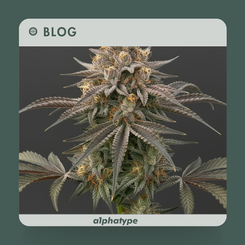News: CIHEAM Zaragoza And ANOVE Partner To Advance Plant Breeding Innovation And Training.
- Manuel Basegla
- Jul 11
- 2 min read
Updated: Sep 9
Published 12:00 AM EST, Fri Jul 11, 2025
CIHEAM Zaragoza (the Spanish branch of the International Centre for Advanced Mediterranean Agronomic Studies) and ANOVE (the Spanish National Association of Plant Breeders) have signed a framework agreement to foster cooperation in training, research, and innovation in plant breeding.

CIHEAM Zaragoza and ANOVE have signed a long-term framework agreement to enhance collaboration in plant breeding research, training, and innovation. This partnership brings together CIHEAM Zaragoza’s academic and technical expertise with ANOVE’s industry leadership, aiming to strengthen Spain’s agrifood sector through advanced education and practical exposure for students. The agreement was formalized by Raúl Compés López and Antonio Villarroel López de la Garma, directors of the two institutions.
The alliance will improve students’ understanding of the plant breeding industry, including the development of new plant and seed varieties, regulatory frameworks, and the latest technological advancements. ANOVE will offer access to its network of affiliated companies to support internships, hands-on projects, and mentoring programs. Both parties will also collaborate on communication efforts and joint participation in technical working groups to support the plant breeding ecosystem in Spain.
To further support knowledge exchange and career development, CIHEAM Zaragoza and ANOVE plan to co-organize events such as workshops, conferences, and career fairs. These initiatives will expose students and young professionals to opportunities in plant variety development and contribute to building a skilled workforce capable of addressing future agricultural challenges in the Mediterranean region. While the agreement is focused on Mediterranean agriculture, its emphasis on innovation in plant breeding and regulatory understanding has clear parallels in the cannabis sector. As cannabis breeding becomes more formalized, especially in regions pushing for medical or industrial legalization, such partnerships serve as models for integrating academia with industry. The development of improved cannabis varieties—targeting specific cannabinoids, terpene profiles, and climate resilience—requires similar research, training, and regulatory literacy. Collaborations like this could inspire frameworks for cannabis-specific programs that address quality assurance, intellectual property, and breeding innovation within a rapidly evolving legal and agricultural landscape. Source: Seed World
























































